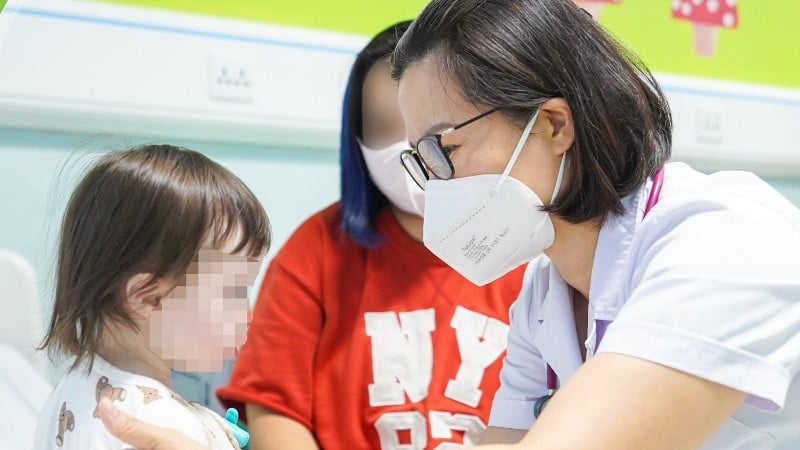
Helpless when your child refuses to eat orally like other children
Baby girl ML (18 months old, Australian nationality), has severe anorexia and has been completely dependent on a gastric tube for the past 14 months.
According to the mother, baby ML was born prematurely so the parents always paid special attention to the child's diet and development. When he was born, he still drank milk normally. However, when he was about 4 months old, he started to eat less and refused to eat for a few days.
At the Australian medical facility, to ensure nutrition, doctors decided to insert a tube from the nose through the esophagus into the stomach to nourish the child. Although the family tried every way to get the child to eat again, the child kept spitting up or vomiting, barely accepting food.
Introduced by many friends, the family decided to bring their child back to Vietnam for examination at the Nutrition Department, National Children's Hospital with the hope of finding the real cause of the child's anorexia and hoping that the child could eat and drink by himself like other children.
Dr. Nguyen Thi Thuy Hong, Deputy Head of the Department of Nutrition, National Children's Hospital, said that this is a special case in terms of both circumstances and disease progression. When admitted to the hospital, the baby was 18 months old, but weighed only 7.9 kg and was 73.5 cm tall, equivalent to moderate malnutrition compared to the growth standards of the World Health Organization (WHO). In addition, the child also showed signs of slow motor development and was still being fed completely through a gastric tube.
"We believe that prolonged anorexia causes the child to lack nutrition, slow down physical development, and lose natural eating and swallowing reflexes," said Dr. Hong.
After taking the medical history, the doctors determined that the child's anorexia phase occurred at 4 months of age, which was a time of change in movement - the child began to crawl. Therefore, the child's attention and need to eat may have temporarily decreased. However, the intervention with early and prolonged catheter placement inadvertently caused the child to lose the feeling and ability to eat by mouth.
After a multidisciplinary consultation and ruling out any organic causes, the doctors decided to remove the catheter and begin the feeding process. This was a difficult decision, as the parents were worried that the child would eat less, causing low blood sugar, weight loss, and worsening malnutrition.
However, after the doctors explained about the system of closely monitoring the children in the ward and the importance of restoring the child's natural eating reflex, the family persevered with the doctors.
Families are guided to re-feed their children step by step, starting with foods such as milk and yogurt, then moving on to thin porridge - foods that have an acceptable taste and are easy to swallow. Each day, the child's food intake and reactions are recorded to adjust the amount of food accordingly.
The good news came sooner than expected. On the very first day after the tube was removed, the baby was able to eat 30ml of milk. In the following days, the baby started to eat about 80ml of porridge without being forced, without spitting up food, crying, or refusing food.
Dr. Thuy Hong emotionally shared that moment as a very valuable sign of recovery.
Currently, the patient's condition has improved significantly, the child has officially completely removed the gastric tube and has been discharged from the hospital.
Seeing her child eating normally, the mother shared that it was like a dream. Although the journey for her child to catch up is still long, but for a mother, seeing her child eat food on their own is extremely happy.
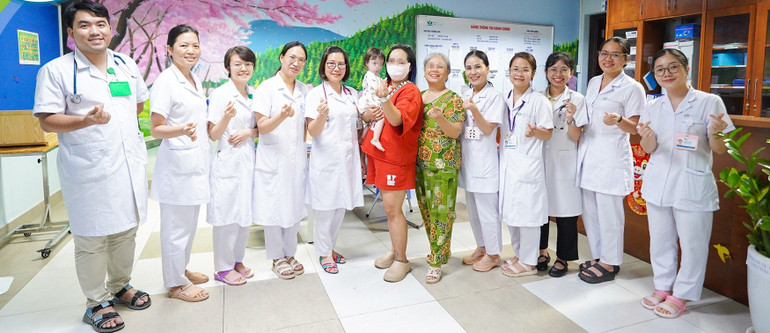
Physiological anorexia has the risk of becoming pathological anorexia.
According to Dr. Nguyen Thi Thuy Hong, Deputy Head of the Nutrition Department, National Children's Hospital, anorexia in children can be caused by many reasons: physiological, pathological, habitual or psychological.
"If parents are too worried, force their children to eat, or intervene too early with a catheter or intravenous feeding when not necessary, the child is at risk of losing the feeling of eating, reducing the swallowing reflex and leading to true anorexia," said Dr. Hong.
Therefore, this expert recommends that parents need to be patient, accompany their children, and take them to medical facilities with nutrition specialists for proper assessment, consultation, and treatment.
ML's case is not only a professional success but also a testament to the power of faith and perseverance, and the companionship between doctor-family-patient.
Source: https://nhandan.vn/be-gai-14-thang-tuoi-quoc-tich-uc-ve-viet-nam-cai-ong-thong-da-day-thanh-cong-post920661.html







![[Photo] Opening of the 14th Conference of the 13th Party Central Committee](https://vphoto.vietnam.vn/thumb/1200x675/vietnam/resource/IMAGE/2025/11/05/1762310995216_a5-bnd-5742-5255-jpg.webp)














![[Infographic] Striving for 100% of schools to teach English from grade 1 by 2030](https://vphoto.vietnam.vn/thumb/402x226/vietnam/resource/IMAGE/2025/11/06/1762385718190_nhung-tiet-hoc-chuyen-doi-so-luon-soi-dong-hap-dan-hoc-sinh-1-7103-8710-jpg.webp)
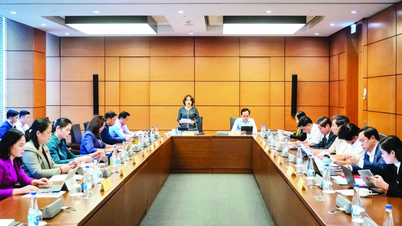
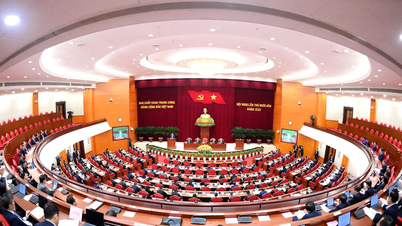



![[Photo] Panorama of the Patriotic Emulation Congress of Nhan Dan Newspaper for the period 2025-2030](https://vphoto.vietnam.vn/thumb/1200x675/vietnam/resource/IMAGE/2025/11/04/1762252775462_ndo_br_dhthiduayeuncbaond-6125-jpg.webp)


































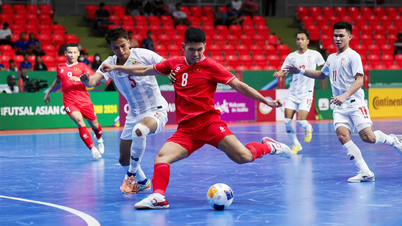
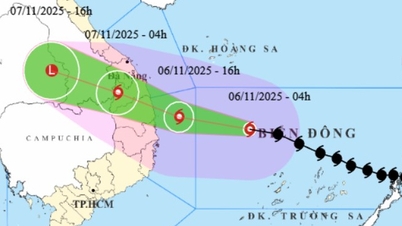




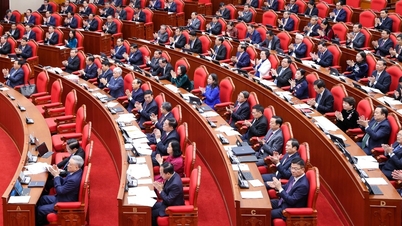











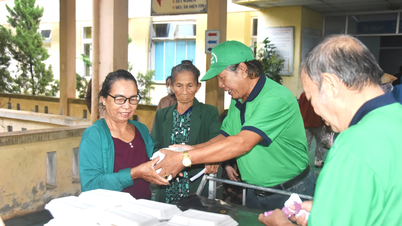




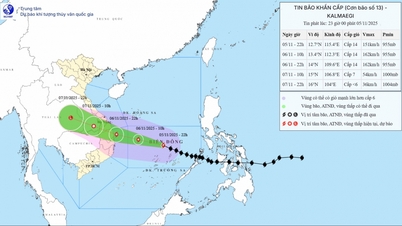















Comment (0)